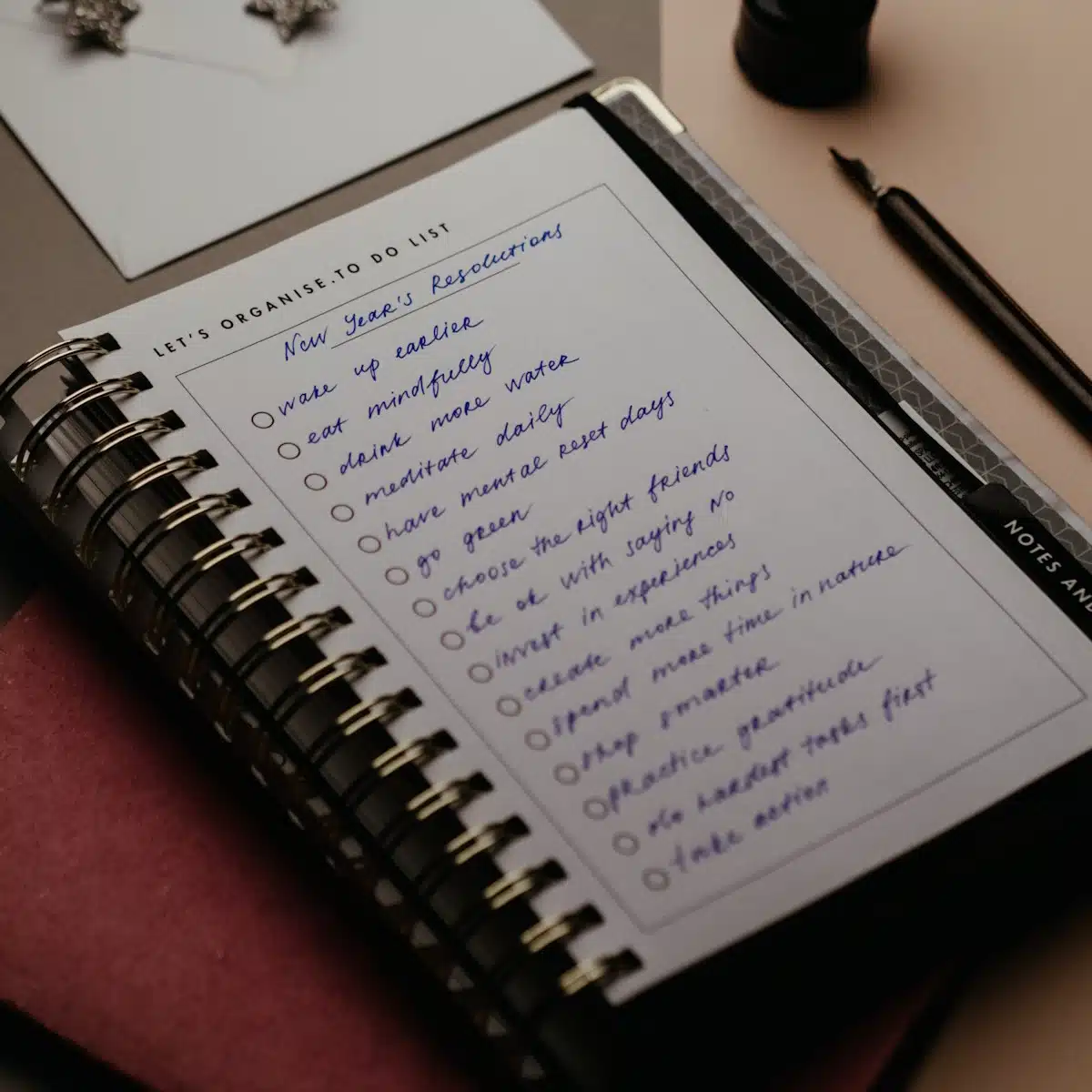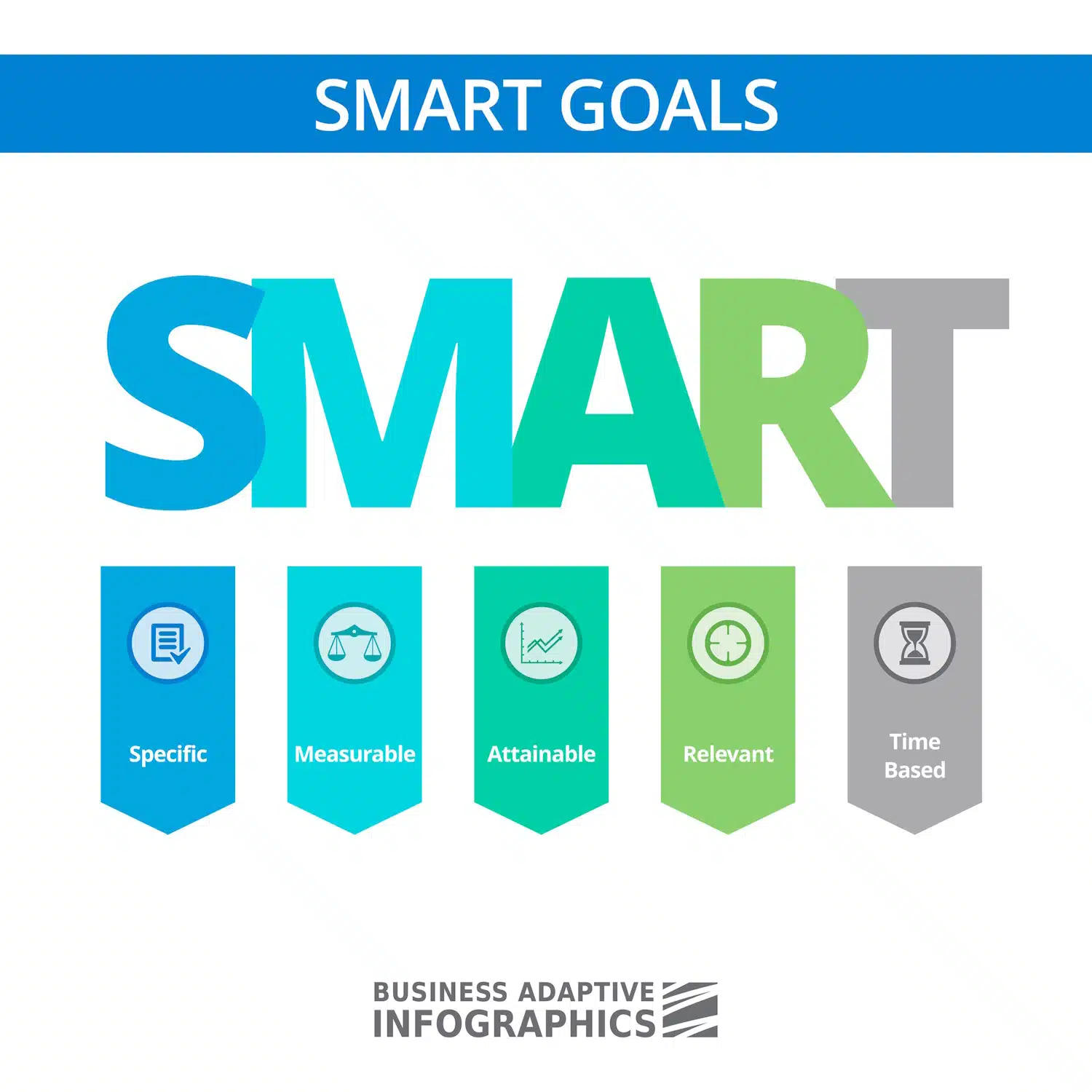Here’s why most resolutions fail — and how you can set goals you’ll actually achieve.

It’s that time of the year again! That’s right, it’s the time when you promise yourself that this year you’ll start going to the gym five days a week.
I’m, of course, talking about the New Year and, specifically, New Year’s resolutions.
While resolutions are as popular as ever, most people don’t follow through with them. In fact, research shows that 90% of adults abandon their resolutions after just a few months.
Despite this, many people still experience an uptick in aspirational feelings during the New Year. If you’re among this group, you might be wondering how to avoid common resolution pitfalls and make truly lasting changes.
On the other hand, maybe you’re the kind of person who just feels neutral when January 1 rolls around. I belong to this group myself; I don’t celebrate the new year or find it special in any way.
As the great philosopher Ben Gibbard once sang, “So this is the new year / And I don’t feel any different.”
No matter how you feel about the New Year, there’s no denying that it provides a reason (however arbitrary) to develop new habits and let go of old ones that aren’t benefiting you. The only question is how you can actually do that.
With all of this in mind, here are five science-backed tips to set yourself up for success in the New Year.
Know Yourself
I’m not just repeating ancient Greek wisdom in an attempt to seem smart. As cliché as it sounds today, knowing yourself — truly knowing yourself — is integral to setting any type of goal.
The problem is that most of us think we know ourselves, but we actually don’t. 95% of people say they’re self-aware, but only 10-15% of people are actually self-aware. There’s no groundbreaking reasoning behind this; the fact is that we have more blind spots than we realize (even when it comes to ourselves).

And if you don’t know yourself, you’ll struggle to accurately identify what motivates you and what holds you back. Working with a therapist or counselor, having discussions with trustworthy family and friends, and practicing self-reflection can all help you get to know yourself better.
Set SMART Goals
It’s not hard to understand why so many New Year’s Resolutions fail — most of them are nothing more than vague, informal promises people make to themselves.
If you want to set yourself up to achieve your goals, you need to set goals that are SMART: specific, measurable, achievable, relevant, and time-bound. This is a common framework used by productivity experts, and it works as a treat for New Year’s resolutions as well.

Approaching your goals this way means that you have to think critically about desired results, motivation, and practical action steps. This way, you’ll have a concrete idea of exactly where your finish line is and the steps you can take to reach it.
This strategy also helps you break down larger goals into more manageable chunks. Generally, you want to start small and gain momentum, so you have the drive to keep going until you’ve achieved your goals.
It’s also important to think about both the short term and the long term. If you only focus on one, you’ll find yourself stuck sooner or later.
Understand the Science of Habit
You don’t need to become an expert in psychology to accomplish your goals, but it’s helpful to know a few basics about how the human brain works.
One key concept to know is that habits are formed by intentional routines. If you want to make something a habit, you first need to consciously and deliberately do that thing over and over. The more you perform a routine, the sooner it will become a habit.
It’s also useful to understand how the brain seeks reward. This is why it’s so tough to adopt behaviors that don’t result in at least some form of immediate satisfaction, and it’s also why it’s so helpful to break down bigger goals.
Create Real Accountability for Yourself
It’s extremely difficult to make any lasting changes if you don’t have anyone to hold you accountable. Most humans naturally seek the path of least resistance, so we need some sort of external force to spur us forward.

No matter what kind of changes you want to make, getting an accountability partner will help tremendously. You need someone to be a loving critic who will help you see where you’re succeeding and where you’re falling short (and how you can improve).
Your accountability partner will also help remind you why you’re trying to make these changes in the first place so that you don’t lose sight of the bigger picture.
Ask Why (And Why Not)
Constantly asking questions is one of the best life pro tips I have. It’s also a great strategy for setting goals because it allows you to stay focused on what’s motivating you.
Making or breaking habits means repeatedly taking action, but most of us will falter, and that’s normal. What’s more important is to address those feelings of resistance by asking why you want to accomplish the bigger goal — and why you don’t want to take steps toward accomplishing it.
Let’s say you’ve made it a goal to spend an hour a day looking for a new job, and you’ve blocked out the 7:00 hour for that purpose. But when 7:00 comes, you find yourself thoroughly unmotivated. This creates two important questions: Why are you looking for this job, and why don’t you want to spend the time looking?
Asking these questions will help you address the root causes of your resistance. This doesn’t mean you can’t ever stray from your schedule — it’s normal to have ups and downs — but it can help you understand why you’re feeling stuck or demotivated.
Is Success Even the Point?
Setting SMART goals is a great way to begin or continue your journey of self-improvement, but at the same time, it’s important to understand that you won’t fail if you don’t perfectly meet your goals.

This might seem trite, but understanding that success is a continual journey of improvement rather than an end goal is critical. Success can always be redefined, so it’s hard to ever feel successful. True success is making the same deliberate choices to improve your life every day and getting back up each time you fall down.
Questions? Comments? Leave them below!






Ask Me Anything